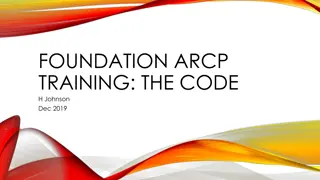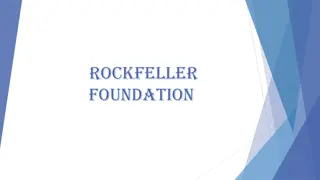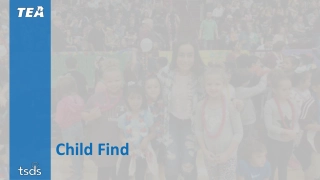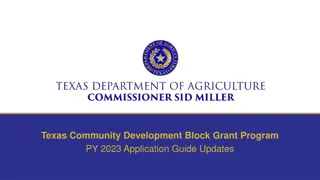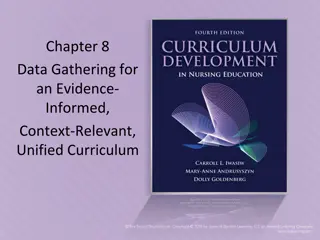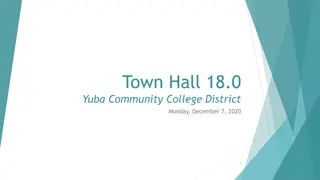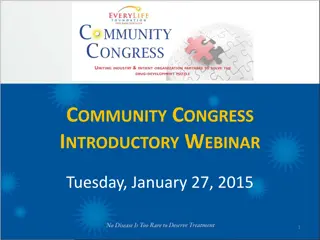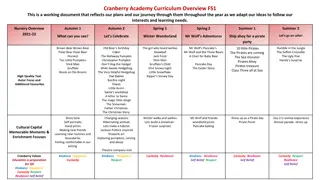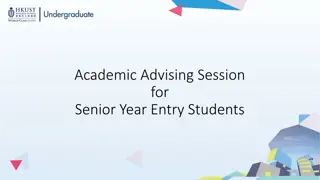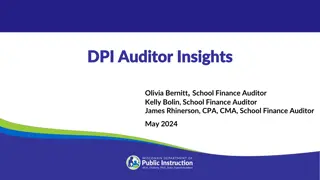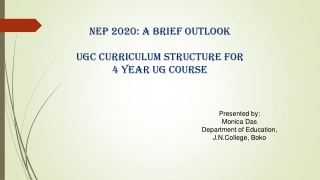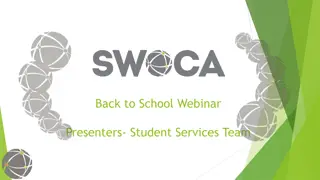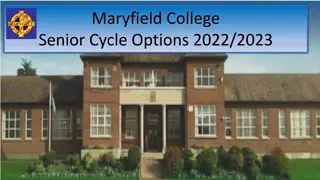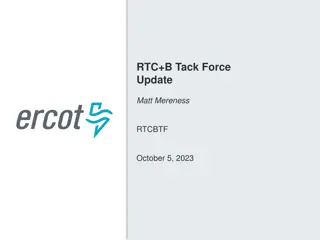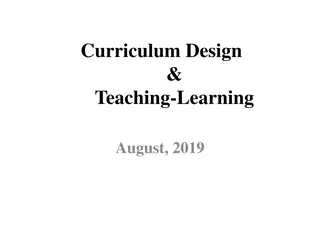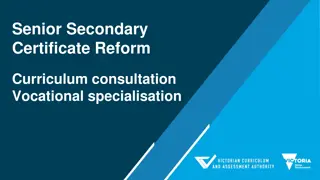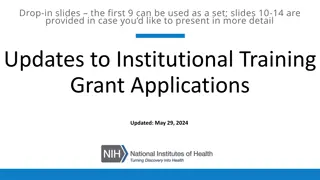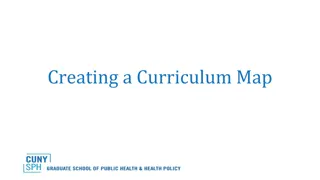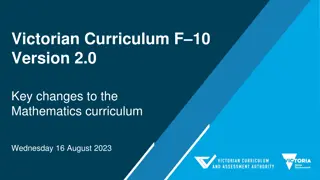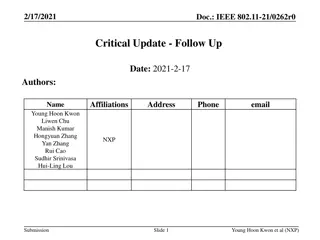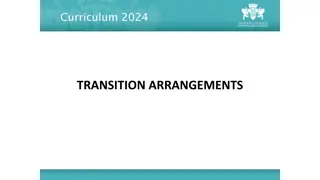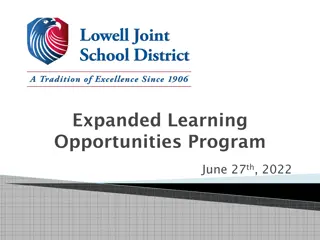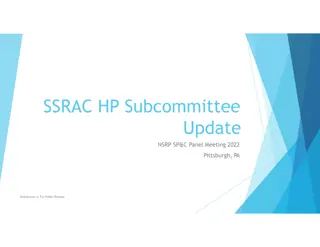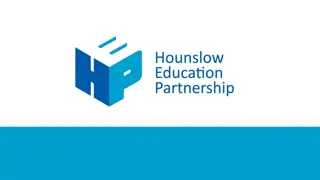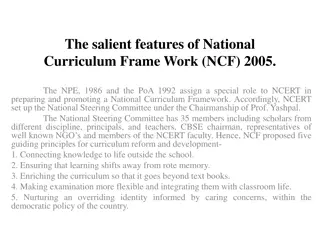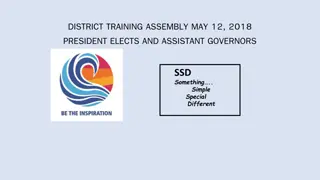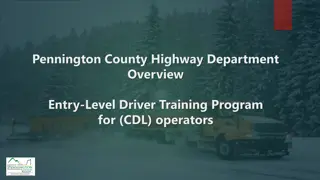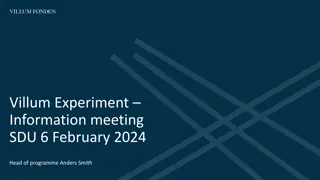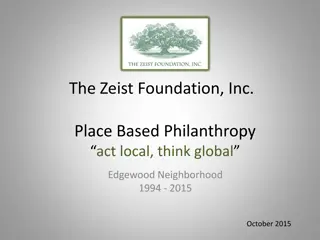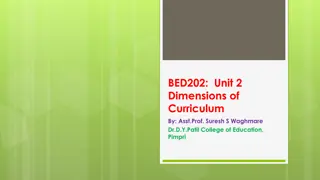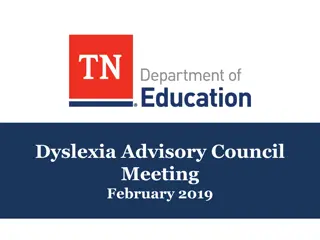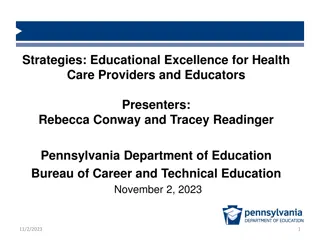Overview of Foundation Year 2 (F2) Training Program Changes and Curriculum Updates
The Foundation Year 2 (F2) training program entails significant differences from F1, including increased clinical responsibility and decision-making skills. F2 trainees are also responsible for managing F1s, preparing for the next stage of training, and studying for leave. Changes for this year include derogated ARCP requirements, new curriculum updates, and no minimum number of SLEs. The 2021 Foundation Programme Curriculum emphasizes various healthcare worker capabilities and focuses on acute and community care, including mental health and chronic illness management.
Download Presentation

Please find below an Image/Link to download the presentation.
The content on the website is provided AS IS for your information and personal use only. It may not be sold, licensed, or shared on other websites without obtaining consent from the author. Download presentation by click this link. If you encounter any issues during the download, it is possible that the publisher has removed the file from their server.
E N D
Presentation Transcript
F2 Induction F2 Induction
Differences between F1 and F2 Differences between F1 and F2 More clinical responsibility and decision-making skills Responsibility for more clinical procedures e.g. DNACPR, consent forms etc Responsibility for managing F1s Preparing for next stage of training Study leave
F2 F2 changes for this year changes for this year Derogated ARCP requirements ended 30Hrs core + 30hrs non core learning 60Hrs in the year New curriculum 2021 New Higher Level Outcomes and Foundation Professional Capabilities Parity of physical and mental health Hierarchy of evidence Capabilities of CPR management still required (ALS not mandatory) No minimum number of SLEs Placement Supervision Group mandatory (replaces 1 TAB) Summary Narratives
Requirements for F2 ARCP Requirements for F2 ARCP TURAS e-portfolio is platform for recording All following information is available on the Scottish Foundation School Website
2021 Foundation Programme Curriculum
al capabilities al capabilities Curriculum THE CLINICIAN HLO1: THE CLINICIAN THE HEALTHCARE WORKER HLO2: THE HEALTHCARE WORKER HLO3: THE PROFESSIONAL Direct and indirect patient care: Integrating into the healthcare workforce: Professional requirements and expectations: 1. Clinical Assessment 6. Sharing the Vision 11. Ethics and Law 2. Clinical Prioritisation 7. Fitness to Practise 12. Continuing Professional Development 3. Holistic Planning 8. Upholding Values 4. Communication and Care 13. Understanding Medicine 9. Quality Improvement 5. Continuity of Care 10. Teaching the Teacher Each FPC further explained in the curriculum
Curriculum Acute care (including acute mental health care) There is a focus on: Physical health Mental health Social health Physicalhealth Mentalhealth The management of chronic illness Community care (including population health) Across a variety of different areas: Community or primary care Acute and chronic hospital environments Mental health settings and Environments that provide health promotion Socialhealth
Curriculum Requiresan equity of mental and physical health evidence For clinical FPCs - provide SLEs that demonstrate both physical and mental health Eg FPC2 - management of the acutely unwell patient Physical health - SLE covering acute cardiovascular deterioration Mental health - SLE covering delirium or acute confusional state For FPCs 1-5 it is expected that more than 1 SLE will be required to demonstrate competence. Both physical and mental health should be underpinned with reflections and learning logs
Curriculum coverage Curriculum coverage Curriculum part of e-portfolio on TURAS Experiential (SLEs) 3 Higher Level Outcomes (HLOs) Does (observation) 13 Foundation Professional Capabilities (FPCs) Shows how (demonstration of skills) Simulation Learning / reflection Evidence linked to FPCs Knows how (application of knowledge) Use range from Hierarchy of Evidence Knows (knowledge) Millers pyramid Hierarchy of Evidence
Supervised Learning Events Mini CEX, DOPs, CBD, DCT A couple of new ones - LEARN Learning encounter and reflection note can use in place of CEX, DOPs, CBD and other forms of evidence eg performance in simulation LEADER record feedback of event where demonstrated leadership skills
Supervised Learning Events No minimum number required Curriculum states sufficient evidence needs to be provided for FPCs Also states Evidence to satisfy FPC1-5 should include direct observation of at least 5 clinical encounters (SLEs) and specific life support capabilities in FPC2. Hierarchy of evidence SLEs best (does) A range of evidence expected for FPCs FPC2 must be evidenced with capabilities demonstrated SLEs are great way to learn, done in workplace not your free time!
Placement Supervision Group (PSG) Feedback from senior healthcare professionals Clinical and professional practice Form generated by supervisor at initial meeting Supervisor will send tickets at appropriate time to group members Informs supervisor s end of placement report Good opportunity to show excellence in your training 1 satisfactory PSG per year mandatory (post 1 or 2)
Summary Narrative One for each HLO over the year 3 in total Up to 300 words each Reflect on progress with curriculum evidencing Explain the rationale for evidence selected to demonstrate each HLO Start process of self development, train for appraisal & revalidation Formative assessment
Study leave Study leave This includes deanery teaching, tasters & simulation ALS no longer mandatory any SL budget if not doing ALS TBC Up to 8 days available for SL Must have service approval prior to requesting leave Must be requested on TURAS PRIOR TO DATE OF LEAVE otherwise cannot be authorised Please request tasters in the same manner as other SL
Study Leave Study Leave Included Day to sit professional exam Excluded Exam preparation courses Interviews (service leave) Interview practice courses
Tasters Tasters Opportunity for exposure to help guide career choices Up to 2 specialties Max of 5 days each Within region in almost all circumstances Not overseas Request in the same way as SL requests on TURAS system
Core Core & Non Core Learning & Non Core Learning Core (30 hours) Delivered education programme Simulation sessions Learning mapped to missed topics Non Core (30 hours) Dept teaching / meetings / grand rounds / M&Ms / journal clubs etc Not experiential / on the job learning Not tasters All recorded in portfolio by trainee
Reminder of Requirements 3 combined supervisors EoPR QI project TAB Curriculum evidenced Incl FPC2 specific cardiopulmonary arrest management PSG Summary narratives PSA Engagement with programme Core & non core learning
Reminder of Other Requirements Reminder of Other Requirements SOAR declaration Absence declaration Completion of Destination Survey end F2 GMC National Trainee Survey (NTS) April/May Scottish Trainee Survey (STS) (at end of each post)
Further Information UKFPO website https://foundationprogramme.nhs.uk/curriculum/new-uk-foundation- programme-curriculum-2021/ Scottish Foundation School Website https://www.scotlanddeanery.nhs.scot/trainee-information/scottish- foundation-school/current-trainees/


